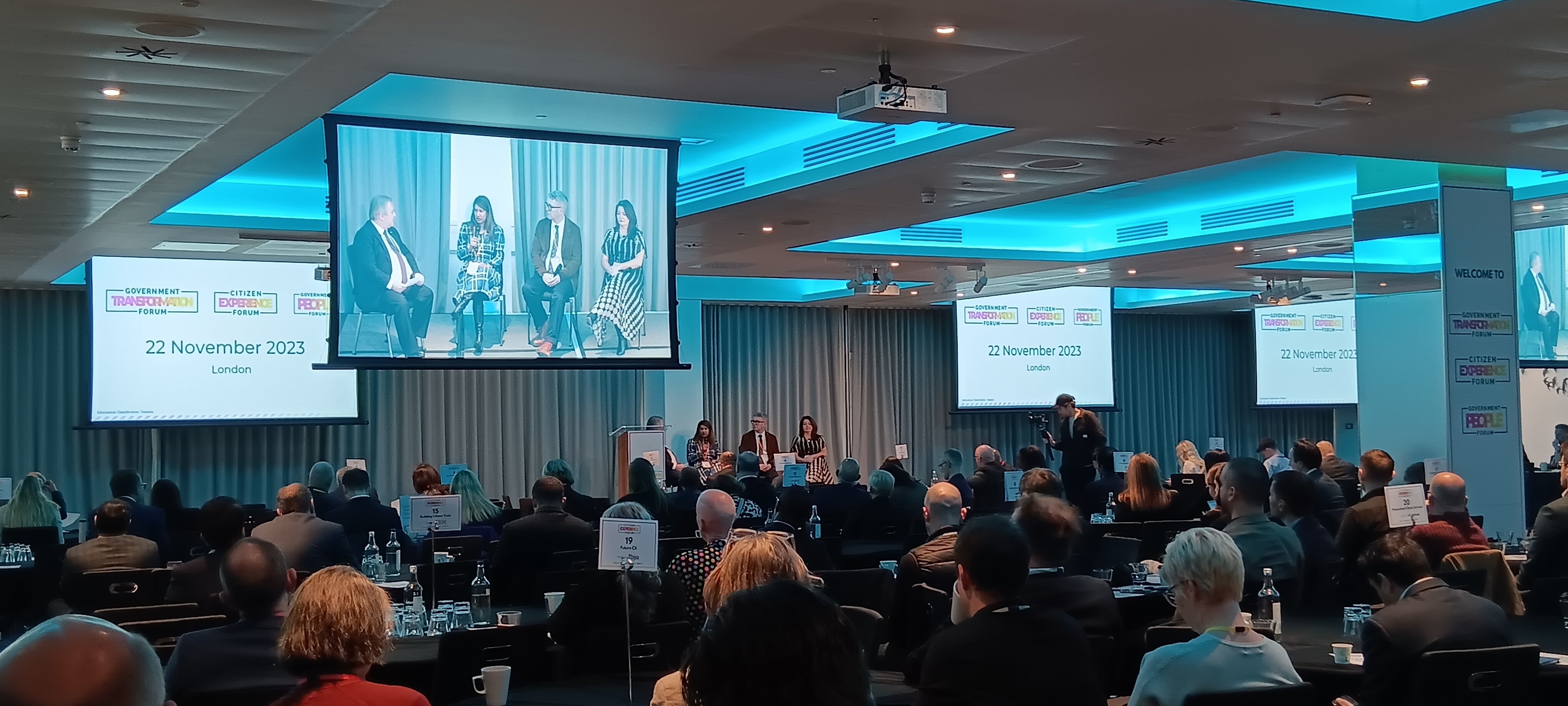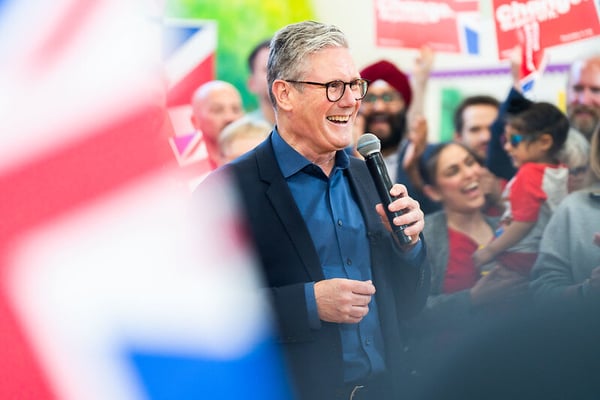The future of government delivery: People, processes and tech
What does the future of government delivery look like? That was the opening question of the first panel at yesterday’s Government Transformation Summit - a gathering of over 400 DDaT leaders and public sector experts from the UK, Canada, Estonia, Ukraine and Poland.
The session, featuring Rich Corbridge, Chief Digital & Information Officer at DWP, Joanna Rowland, Director General, Transformation at HMRC and Vidya ShankarNarayan, Assistant Deputy Minister & CIO, Agriculture & Agri-Food Canada, explored the interplay of evolving citizen expectations, emergent technical capabilities and pressures on the existing public sector operating model.

Hierarchy of success
Government organisations are still burdened by lagging legacy systems; a huge hurdle for any transformation project. According to Joanna Rowland, Director General, Transformation at HMRC: “We're never going to get off of old systems if we continue to operate in the same way – we need to think differently and we need to look at how technology support us differently.”
She outlined a hierarchy of success necessary to drive results: “People at the top, processes second and last comes technology."
Too often government organisations think about this the wrong way around, "but if we’re not thinking about it in that order we won’t see results," Rowland argued.
At the heart of it all is citizen experience - "everything must always feed back to that," she said. "So what does the customer need from us and what do we need to look like to service it? That then drives your processes and tech."
Breaking hardwired behaviour
The need to leverage tech to work in new ways – as opposed to reverting back to existing ways of working was the clear message from Vidya ShankarNarayan, Assistant Deputy Minister & CIO, Agriculture & Agri-Food Canada. “You can’t force feed change so it's about how we break those hardwired business processes."
Breaking deep-rooted behaviour patterns will require government organisations to grow and elevate their digital and technical capabilities, she said. This is key to shifting mindsets and delivering public services differently.
"Canada has a population of 40 million and the last time I checked we need 5 million more talented individuals in the field of digital and data. That's huge skills gap for a country of our population and size."
Public and private: In it together
Rich Corbridge, Chief Digital & Information Officer at DWP, highlighted the need to unlock greater collaboration between the public and private sector. Doing so, will enhance user experiences and accelerate the delivery of more efficient, effective public services.
He argued that it should be less about what the public and private sector can learn from each other and more about how they can work together. “Technology is moving at a pace where unless we work together, we won’t be able to operate.” This is particularly relevant when it comes to emerging tech like AI and Generative AI.
There are lessons to be learnt in the agility that the private sector brings. “It's hard to move big, old organisations in government with a lot of history. By taking that mindset and challenging our risk appetite, we can get better at moving more quickly."
Like Rowland, he also talked about the potential for more effective government delivery once the ego is taken out of technology. "Afterall, it’s at the bottom of that hierarchy."
Putting more of a focus on collaboration and people is far more valuable, he explained.
Digital trust
Another key theme to emerge was trust; built in drops and lost in buckets.
“From a government perspective, trust is no longer a given. We really need to work with citizens on bridging the gap between people and trust level thinking processes,” says ShankarNarayan. “We need to prove that we can keep information safe, that we are sharing only the information we need to share and we're only collecting the information we need to – even before we start sharing.”
While trust isn't something to be taken for granted, neither is it something to be scared of, Rowland added. “As long as organisations can demonstrate they have citizen interests at the heart of their services, we will not have a problem with that.”

By Sam Birchall
Sam is the senior reporter at Government Transformation Magazine.Also Read
- Transforming public services: why people, partnerships, and tackling technical debt matter most
- ‘Roadmap for Modern Digital Government’ sets out tech-led transformation to 2030
- Darren Jones launches “Move fast, fix things” reforms, setting out case for a new digital state
- Northumberland expands digital tools to support frontline council services




